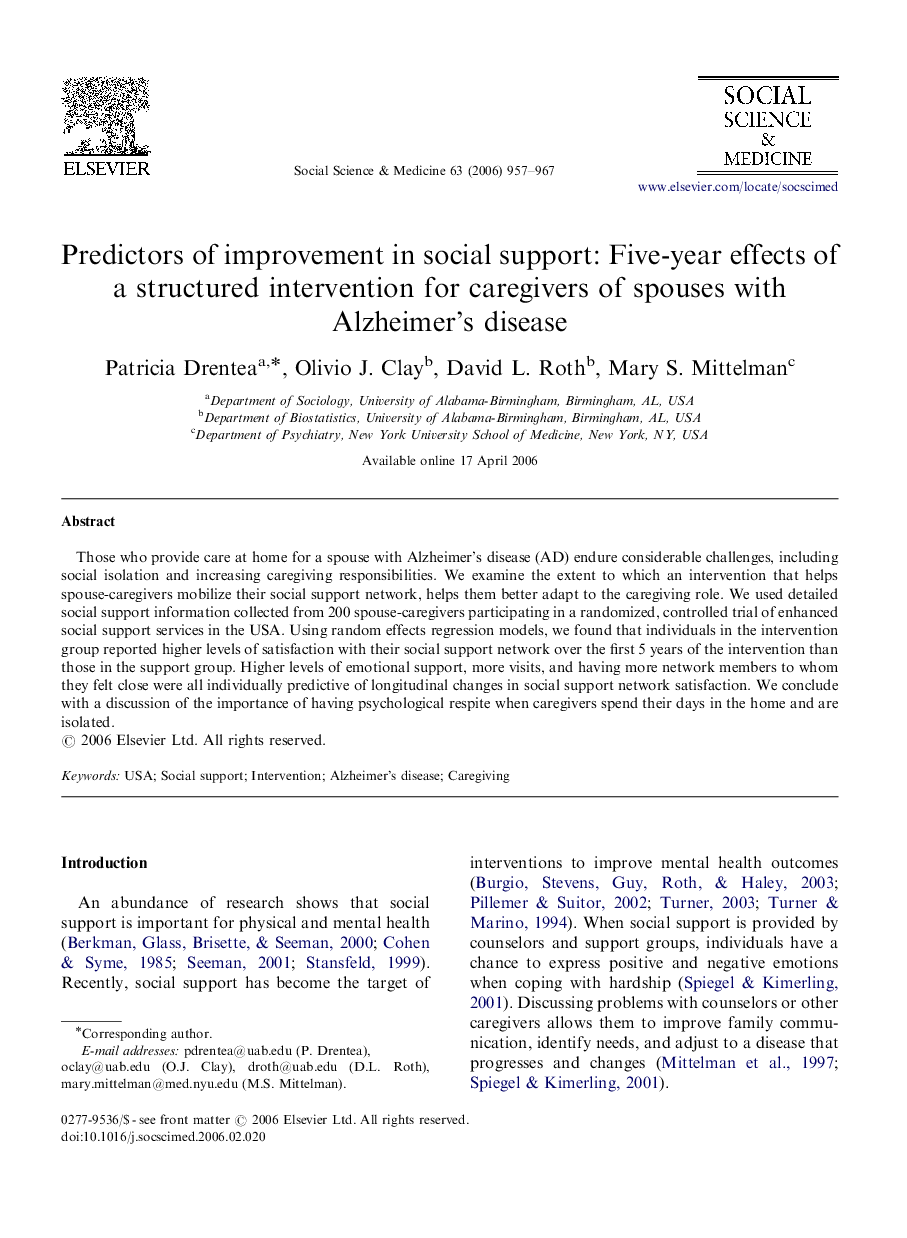| Article ID | Journal | Published Year | Pages | File Type |
|---|---|---|---|---|
| 954299 | Social Science & Medicine | 2006 | 11 Pages |
Those who provide care at home for a spouse with Alzheimer's disease (AD) endure considerable challenges, including social isolation and increasing caregiving responsibilities. We examine the extent to which an intervention that helps spouse-caregivers mobilize their social support network, helps them better adapt to the caregiving role. We used detailed social support information collected from 200 spouse-caregivers participating in a randomized, controlled trial of enhanced social support services in the USA. Using random effects regression models, we found that individuals in the intervention group reported higher levels of satisfaction with their social support network over the first 5 years of the intervention than those in the support group. Higher levels of emotional support, more visits, and having more network members to whom they felt close were all individually predictive of longitudinal changes in social support network satisfaction. We conclude with a discussion of the importance of having psychological respite when caregivers spend their days in the home and are isolated.
